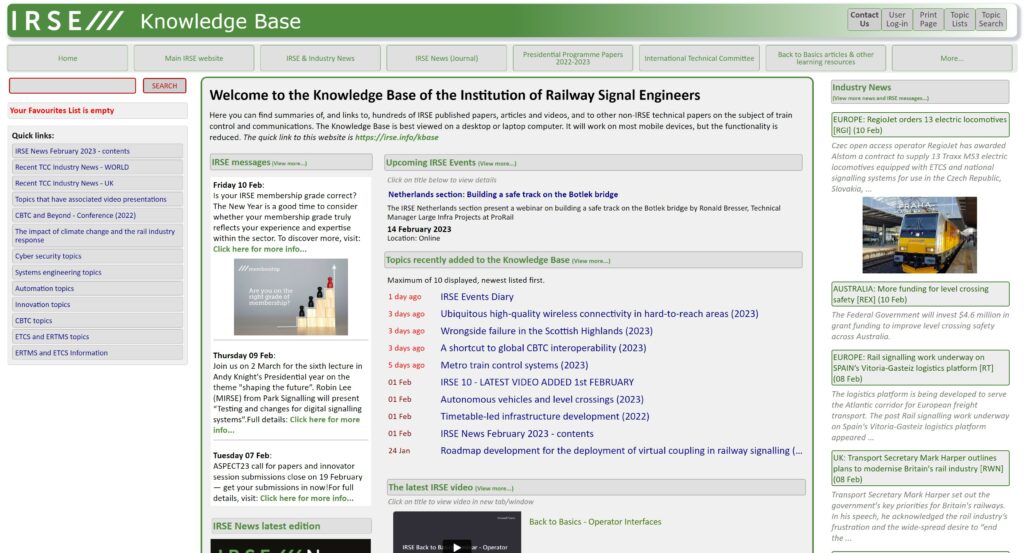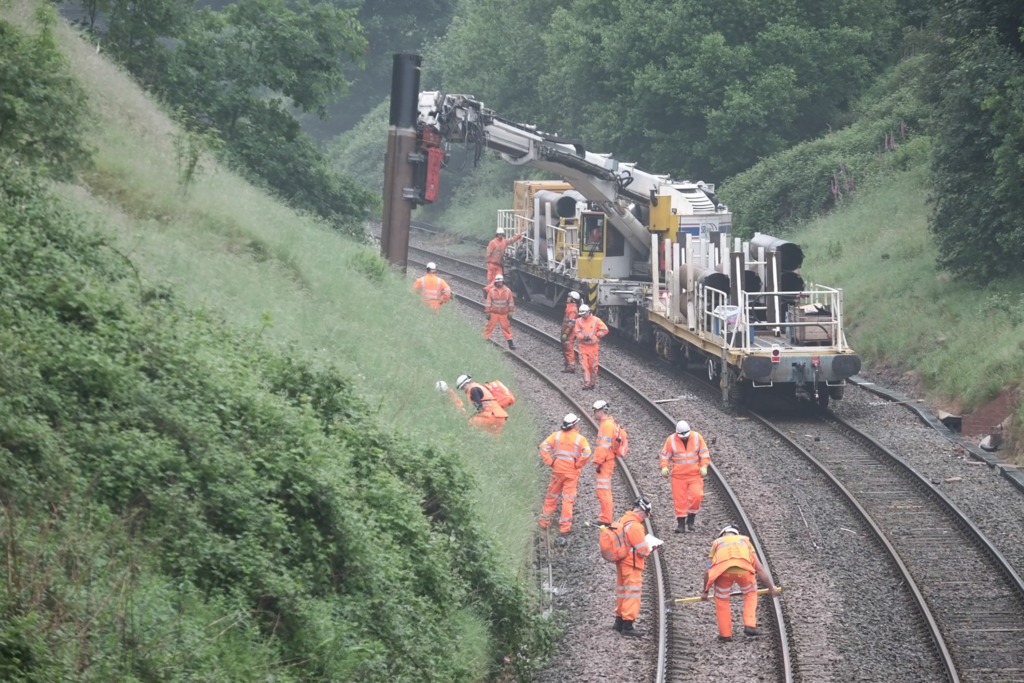In the last few years, the Institution of Railway Signal Engineers (IRSE) has reviewed and updated the IRSE Professional Exam, resulting in a suite of ‘modules’ to enable people working in the industry to gain qualifications appropriate to the level they work at, or aspire to.
Studying for and passing the IRSE Advanced Diploma in Railway Control Engineering (IRSE Professional Exam) provides one of the main routes to corporate membership of the IRSE. It is designed to test candidates’ knowledge of railway signal and telecoms principles and practices. The exam is modular in nature, allowing students to answer questions relevant to their subject specialism and experience in railway signalling and/or telecoms.
An additional qualification is now also available, the IRSE Certificate in Railway Control Engineering Fundamentals, also known as Module A. Open to both IRSE members and non-members, it’s suitable for anyone simply interested in, or working in rail. It is ideal for those wishing to gain an initial understanding, or an early qualification for those aspiring to pursue the later modules.
IRSE Certificate in Railway Control Engineering Fundamentals
The Certificate covers all aspects of railway control engineering at a foundation level and the stand-alone qualification is suitable for a wide group of people working on or around, or simply interested in, railway control and telecoms systems; perhaps those who seek greater understanding for signalling project work. For example, railway engineers of any discipline, railway operators, sponsors, project managers, project planners, software developers, and managers of contractors and sub-contractors will all benefit from the knowledge gained, and by passing this module will be able to demonstrate a broad knowledge of railway control and telecoms system engineering.

A wide range of study material, including a reading list, ‘back to basics’ articles, and videos, are also available at no cost from the IRSE.
The Certificate (Module A) is also a mandatory pre-qualifier for those S&T engineers and members of the IRSE wishing to take the Advanced Diploma (IRSE Professional Exam).
The Certificate is a computer-based exam using ‘multiple choice’ type questions to assess knowledge from across the wide syllabus. Candidates can sit this exam twice a year in March and October.
IRSE Advanced Diploma in Railway Control Engineering
The Advanced Diploma is the new name for the IRSE Professional Exam and consists of four mandatory modules. Passing all four modules will lead to being awarded the IRSE Advanced Diploma in Railway Control Engineering.
Module A: The Certificate in Railway Control Engineering Fundamentals is the mandatory pre-qualifier module.
Module B: The Railway Safety and Systems Engineering module assesses a candidate’s understanding of the principles and practices associated with the safety and systems engineering of railway train control and telecoms systems in depth.
Module C: The Principles of Railway Control and Communications Systems module assesses a candidate’s understanding of the principles of the operation of railway control and communications systems and sub-systems in depth.
Module D: The Applications of Railway Control and Communications Systems assess a candidate’s understanding of the factors to be considered when applying items of railway control and communications equipment as part of a scheme, at all stages in the asset life-cycle from specification to replacement/decommissioning.
Study materials for these are available to IRSE members only via the website.

Modules B, C, and D are assessed through essay type questions, enabling the candidate to demonstrate their knowledge and experience in full.
Passing the Advanced Diploma can also provide additional qualifications for professional registration assessment and registration as an engineer by the Engineering Council.
The exams are held twice a year. The Certificate in Railway Control Engineering Fundamentals (Module A) is held in March and October each year, with the next date Saturday 7 October 2023.
Those wishing to sit between one and three of the Advanced Diploma modules (Module B, Module C and Module D) can do so in October each year, with the next date also Saturday 7 October 2023. Applications to take the October 2023 exams must be submitted by 30 July.
Candidates will sit their IRSE exams remotely, so will need a computer, stable internet connection, and a quiet location. The IRSE exam regulations ensure that all candidates are given the same opportunities and that the examinations are conducted in a fair manner. The exams are closed book and are monitored by remote invigilation and anti-plagiarism software to detect any infringement of the exam rules. Awards are also made to candidates who achieve outstanding marks in the exam.
Global success
Since introduction, there has been great interest in the Exam, and particularly Module A leading to the Certificate; with candidates from many countries ‘new’ to the IRSE taking and succeeding over the last couple of years and extending the global sharing of knowledge and competence.
Interested? Learn more at https://www.irse.org/Qualifications-Careers/IRSE-Exam.

